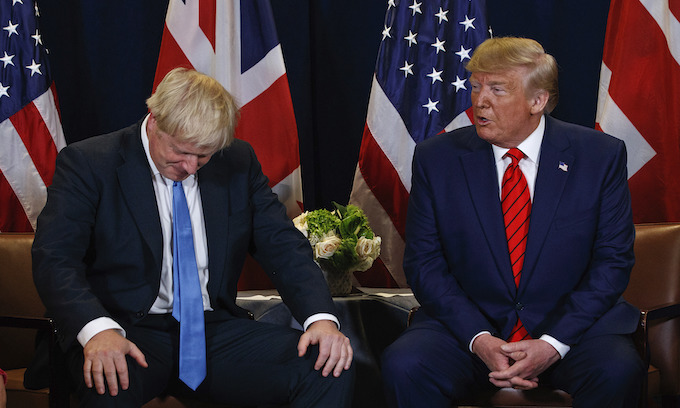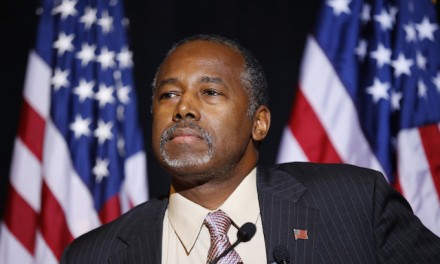Britain, having just extricated itself from a long-term relationship with the European Union, is facing another major task in redefining its special relationship with the U.S. as the dust from Brexit settles.
Despite the close relationship between President Trump and Prime Minister Boris Johnson, ties could be strained by disagreements on issues such as Chinese technology and climate change. One big prize promised by Mr. Johnson and other Brexiteers — the ability to strike bilateral trade deals — also could require hard work and difficult trade-offs.
London and Washington have drawn clear red lines even as they express eagerness to begin direct talks on a free-trade deal this year.
“We will drive a hard bargain and, as with all negotiations, we will be prepared to walk away if that is in the national interest,” British trade minister Liz Truss told Parliament in a statement Thursday. She outlined an ambitious plan for bilateral deals with the U.S., Japan, Australia and New Zealand even as the Johnson government redefines trade and investment rules with the EU.
The Trump administration has published its own extensive wish list of markets and trade barriers, which has unnerved British critics of the U.S.
Mr. Johnson this week strongly rejected criticism that a bilateral deal will hand the U.S. wider access to Britain’s prized national health care system and lower food safety standards. He called the skeptics “naive and juvenile anti-Americans.”
“To the America-bashers in this country, if there are any, in doing free trade deals we will be governed by science and not by mumbo-jumbo because the potential is enormous,” he said in a speech in London.
He said those opposed to a deal with the Trump administration are “conspiracy theorists” and dismissed the prospect of negotiating access to Britain’s National Health Service, the largest single-payer health care system in the world.
Britain finalized its protracted and contentious divorce from the European Union a week ago, more than three years after the referendum in which voters chose to split by a 52% to 48% margin.
Britain and the EU have entered a “transition period” through the end of the year to negotiate their relationship. They will have to resolve a host of long-standing agreements and rules, and Britain’s former EU partners have signaled that they are not in a charitable mood.
Speaking to the Center for Strategic and International Studies on a Washington visit Monday, Liam Fox, a Conservative member of Parliament and a former secretary of trade and defense, said the U.S.-British relationship “is so strong and so necessary” despite a “vigorous debate” about the next phase.
“[With] more than a trillion dollars invested in one another’s economies, we need to work together in all areas of security — national security but economic security too — so that cooperation is no longer … an optional extra,” Mr. Fox said.
The U.S., Britain’s biggest trading partner after the EU, accounted for nearly 19% of its exports and 11% of imports in 2018.
A generational opportunity
The head of a leading British business organization sees Brexit as a “once in a generation” opportunity to pursue global trade deals that drive growth.
Carolyn Fairbairn, the director-general of the Confederation of British Industry, told an audience at the Atlantic Council on Wednesday that the Johnson government “can do a deal with the EU and deal with the U.S. if we approach them in the right way. The collaboration and vision can and must be complementary.”
She said her organization, which represents more than 190,000 businesses, wants a U.S.-British deal that expands trade in services across the Atlantic and eases the customs process to simplify the export of goods and services from small and medium-sized companies.
The Trump administration maintains that its priority is a wide-ranging agreement that eliminates some restrictions. Both parties have significant hurdles to overcome on traditional disputes over security and information sharing, taxes on digital platforms and automobile tariffs.
The Office of the U.S. Trade Representative wrote a report last year arguing that Brexit “creates a new opportunity to expand and deepen the U.S.-UK trade relationship … [that] could address these challenges, as well as provide an opportunity to develop new approaches to emerging trade areas where the United States and the UK share common interests.”
These disputes are already gearing up. London announced Tuesday that it will ban the sale of new gasoline, diesel and hybrid cars starting in 2035, five years earlier than anticipated. The move is set to be a significant blow to U.S. automakers.
“There can be no greater responsibility than protecting our planet and no mission that a global Britain is prouder to serve,” said Mr. Johnson, striking a different tone from Mr. Trump.
The Johnson government also broke with Washington last month when it said it would allow Chinese tech giant Huawei to play at least a partial role in Britain’s 5G high-speed communications network. The U.S., arguing that Huawei posed an unacceptable security threat, put strong pressure on London to reject it.
Analysts say the special relationship may be tested but won’t be threatened as the trade talks heat up.
“The special relationship is too deep, and it’s too old and too important for it to really matter who is in 10 Downing St. or 1600 Pennsylvania Ave. So I’m not too worried,” said Luke Coffey, a foreign policy director at the Heritage Foundation.
Mr. Trump and Mr. Johnson have a “similar worldview, in terms of issues of sovereignty economics, so they get along really well,” he said.
Mr. Coffey, who was an adviser to Mr. Fox during his tenure as defense secretary, said a driving force of Britain’s desire to leave the EU was the inability to sign its own free trade deals.
“It’s only natural that these two countries would want to agree to a great deal,” he said.
© Copyright (c) 2020 News World Communications, Inc.
—-
This content is published through a licensing agreement with Acquire Media using its NewsEdge technology.



















Recent Comments